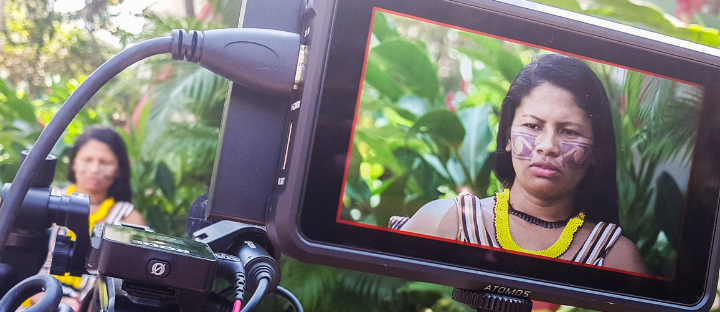At the end of a difficult year, I encourage us all to meditate and reflect on rivers, which endlessly flow, which cleanse and renew, and which nourish and sustain life for us all.
From the Mekong region to the Amazon and Patagonia, authoritarian regimes and profit-hungry corporations have been using the pandemic as cover to devastate our most cherished rivers and ecosystems. That same pandemic is taking a staggering toll on the health, traditional wisdom, livelihoods, and the very lives of Indigenous communities, river protectors, and river communities. It is critical that we now rise up with urgency to support those riverkeepers, who have so long supported us in the protection of our beautiful and cherished rivers, which are so essential to all life on the planet.
And yet, while the Covid-19 crisis has shed a light on the deep-seated inequities in the way our rivers and the people who depend on them are treated, the vulnerabilities created by this crisis also bring us opportunity. There is a growing call for an economic recovery that accelerates a transition to an energy supply that is more just and which respects community rights to rivers and natural resources.
And for all the year’s challenges, International Rivers and our networks have secured some tremendous victories in 2020, victories which are providing strong tailwinds as we head into 2021. In February, the Thai cabinet cancelled a rapids blasting project on the Mekong after two decades of resistance and advocacy by grassroots communities and civil society networks supported by International Rivers. This means that a highly biodiverse 600km area of the Mekong, which is critical to the livelihoods of thousands of local and traditional peoples, will be protected from destruction. The Cambodian government also recently announced that it has suspended all dam building on the mainstream of the Mekong River for at least 10 years, assuring that at least this part of the Mekong River will continue to flow freely.
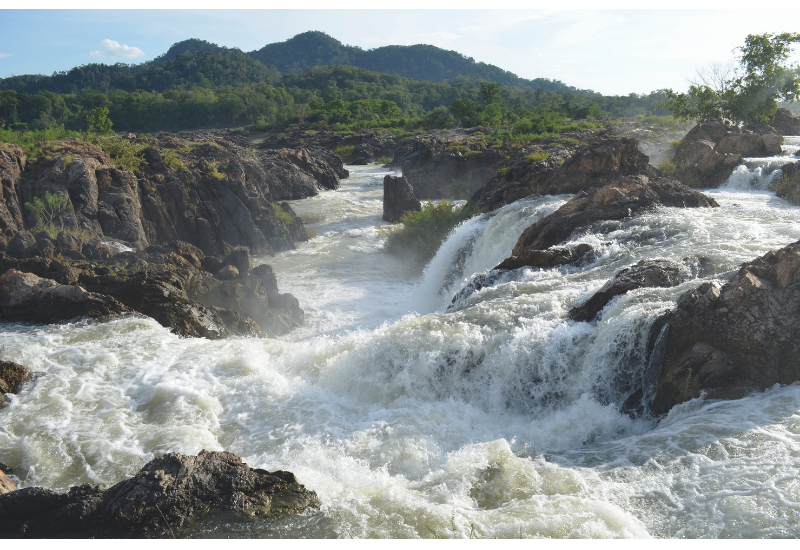
And the good news continued. In Brazil, several major investors withdrew from projects that threaten rivers on grounds of the country’s backsliding on environmental protections. In the United States, the largest dam removal in history is scheduled to take place next year, after a decades-long effort to restore the Klamath River, led by indigenous northern California tribes. These victories are the result of long-term, sustained social movements, which are the very heart of our strategies to protect rivers and defend the rights of communities that depend on them. These victories show that strong communities and movements continue to be the key to success.
I am humbled to join International Rivers in a time of both significant change as well as precedent-setting campaign successes. With a background in business and human rights, coupled with my passion as an avid river paddler, I find it incredibly moving to see, and sometimes – when I’m lucky – even to paddle and swim in the iconic rivers that our global network has worked so hard to protect from damming, from diversion, from reckless development, and from pollution.
I joined the organization in June, when the world was under lockdown, and the in-person conferences, global forums, and field visits that were previously the foundation of our work were no longer possible. Our program teams were working hard to reimagine our work and to find innovative ways to continue our advocacy and movement-building work virtually. Thanks to a global network built on strong relationships from the ground up, and thanks to our supporters around the globe, we have not only preserved, but pushed forward our vision for a healthier and more just planet this year.
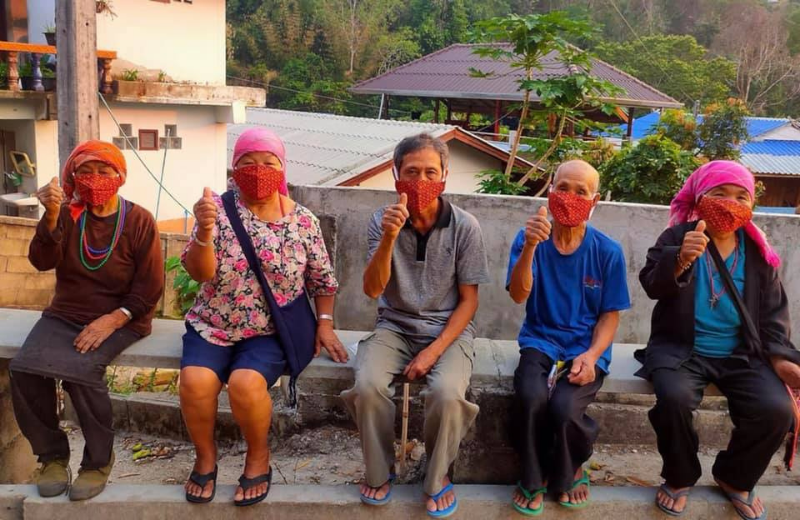
I’m proud of our many achievements this year. Highlights from our ever productive staff and partners included launching foundational work to build a global movement for the Rights of Rivers, pushing for permanent legal protections for rivers in South America, preserving endangered species and critical biodiversity in West Africa by holding overseas investors and corporations accountable, and continuing to strengthen the global network of women river defenders, who make outsized contributions to better social and environmental outcomes for rivers. I’m also proud of our work to provide direct financial support to river communities fighting the devastating direct impacts of Covid, even as they are also fighting back against opportunists, who are exploiting the pandemic as an opportunity to encroach on and even occupy these communities’ lands and waters.
Together, International Rivers and our networks are pioneering a new way forward – one that centers on local knowledge, local ingenuity, and truly renewable local energy solutions. Giving river defenders around the world our all in their current fight for survival means giving us all a shot at realizing a different, more just world order on the other side of today’s pandemic. On this 35th anniversary of International Rivers, I extend my deepest gratitude to those who have supported the global movement for rivers over the years. On behalf of International Rivers and the world’s rivers, thank you.
For people, water, and life,
Darryl Knudsen
Highlights from our work in 2020
River Protections & Transboundary River Governance
Rivers for Recovery: Protecting rivers and rights essential for a just and green recovery
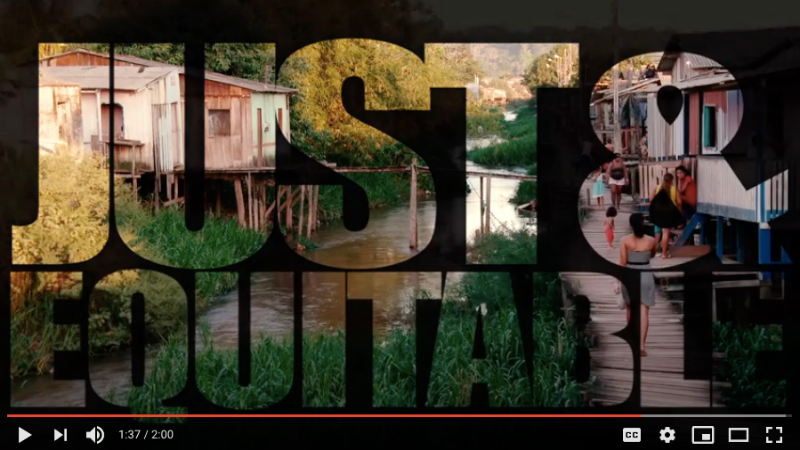
In 2020, the International Hydropower Association (IHA) urged its members to “have shovel-ready projects in place for the post-Covid 19 economic stimulus plans.” In other words, the hydropower industry is seeing the pandemic as an opportunity to profit from recovery funds that would be much better spent elsewhere, including upgrading and improving the efficiency of existing dams. Despite the rhetoric of the hydropower industry, the industry’s global flagship projects continue to prove poor investments. This in addition to destroying critical ecosystems and biodiversity, while devastating local populations, human rights, and food security.
Our Rivers for Recovery report, released this month with our partner Rivers without Boundaries, charts an alternative course for post-pandemic energy development than the revitalization of a failing hydropower industry. Rivers for Recovery provides an indicative list of destructive projects that are yet in the pipeline but could be stopped with forward-thinking on cheaper, cleaner options by governments; a chance to avoid crippling new debt in the post-pandemic recession. It also provides a detailed roadmap that not only calls for a moratorium on new dams in the economic recovery, but investments in alternatives and increasing efficiency of current dams, and commitments to protect critical biodiversity and the world’s remaining, free-flowing rivers.
We launched the Rivers for Recovery report with a short video (linked above) and a webinar that featured a global panel of speakers who are working to ensure that rivers are part of a just and green post-Covid economic recovery. In 2021, we aim to continue mobilizing this global movement and deliver our messages to decision-makers at national and international levels.
Rights of Rivers & Permanent Legal Protections for Rivers
Rivers are our lifeblood. They are vital to our health, well-being, and livelihoods. They are critical in arresting the climate crisis. Yet today they face manifold threats. A majority of the world’s rivers have been dammed, fragmented, and polluted with alarming consequences for human rights, local economies, and the environment. As a result, freshwater species are declining more than twice as fast as land-based and marine species. And the world is reaching a ‘critical point of no return’ on climate change.
That’s why a global movement is emerging now, to guarantee the fundamental Rights of Nature…and the Rights of Rivers in particular. This year, we took a look at how this growing movement is successfully winning rights for rivers, in our Rights of Rivers report produced in collaboration with the Earth Law Center and the Vance Center for International Justice.
‘Rights of Nature’ is the idea that nature possesses fundamental rights. Rivers have become a central focus in the Rights of Nature. By recognizing that rivers have fundamental rights, we can better assure their protection. And we can begin to shift legal paradigms that allow our rivers, our most vital and sacred natural resources, to be exploited for the benefit of the few at the cost of the many.
Behind the legislative developments and judicial decisions that we examined in the report, are the actions of many people organizing to bring about change. For example, changes to Ecuador and Bolivia’s constitutions were driven by peoples’ movements, rooted in the Indigenous concept of Sumak Kawsay, or “good living.” A civil society campaign in Uganda helped ensure that Rights of Nature was part of the country’s new environmental protection law. Our work this year has been to inform, connect, and inspire these new and emerging movements. Along with the report, we helped with the creation of the Universal Declaration of the Rights of Rivers. We also brought together judges, lawyers, and indigenous activists who had been involved in Rights of Rivers cases in Colombia, New Zealand, and India, to share their experiences in a Rights of Rivers webinar:
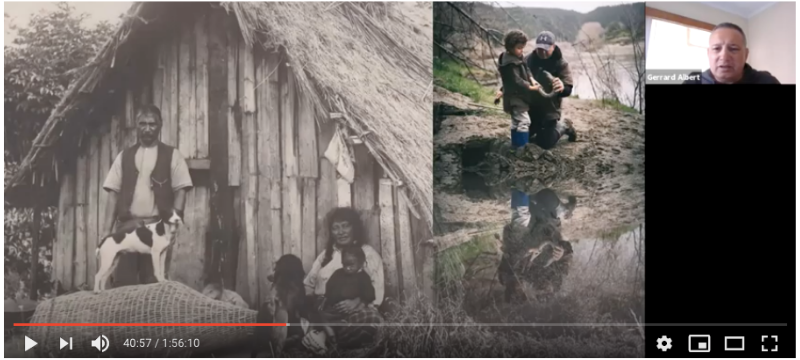
We are using the Rights of Rivers report and the momentum generated this year to build and strengthen an international coalition of lawyers and civil society groups that can support the drafting and implementation of legal river protections on country and river basin levels. In Chile’s Patagonia, we worked with partners for decades to resist a huge project that would have devastated Patagonian rivers, and we finally succeeded in getting the companies to pull out and return their water rights to the Chilean government two years ago. Now we are now fighting for those rivers to be permanently protected under Chile’s new constitution.
In Brazil we have developed a new river protection law, drafted by our team with input from partners and legal experts. And we are building the campaign for protection of the free-flowing Kunene River in Angola and Namibia, supporting indigenous communities to exercise their rights in decision-making on the proposed Baynes dam. In the coming year, we aim to support the filing of these new Rights of Rivers cases or River Protection Legislation proposals, and to expand the movement to permanently protect rivers to new groups of lawyers, campaigners and communities, for growing global awareness.
Movement Building & Human Rights
Building a network of women river defenders
Oftentimes, the river protection movements that we support are led by women, and in many of these cases, women river defenders are not receiving the support and the resources that they should in their work. While women are often the primary stewards and defenders of their communities and rivers, women are also often marginalized in decision-making spaces and this is no different when it comes to decisions about how water is managed and governed. International Rivers is looking to rectify this through our Women and Rivers network, which was initiated at the first ever Women and Rivers Congress in 2019. The Congress gathered over 100 women river defenders from around the world to celebrate the role that women play in river management and governance, build networks, share skills and resources, and outline a platform for action. Collectively, we identified the need to build a knowledge and evidence base about the role of women in river management and governance, to mobilize resources, and to tell our stories with each other and the world. Watch the video below to learn more:
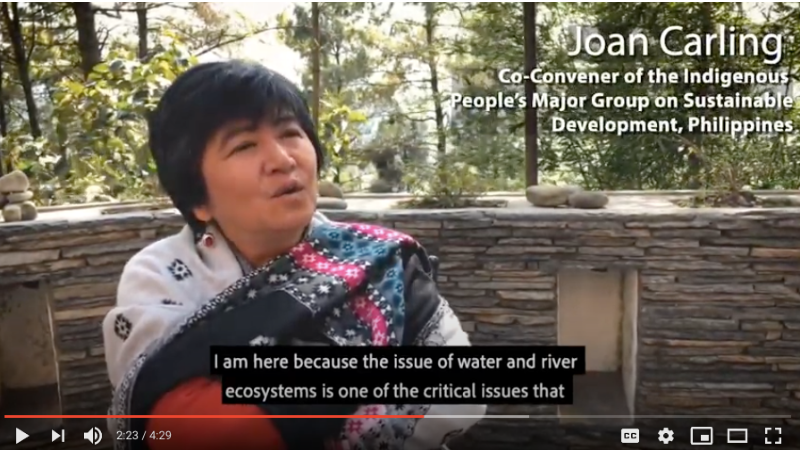
In 2020, we set out to address these needs through assessing the state of knowledge about women’s roles in protecting and stewarding rivers. We wanted to better understand how women use their unique forms of knowledge to manage critical river systems and nurture livelihoods and vital ecosystems. This research culminated in the State of Knowledge: Women and Rivers in the Mekong Region report. The report confirmed that women’s leadership is critical for managing rivers well, for as International Rivers’ Phairin Sohsai observes, women “are the people who take care of their families and the river.” The report details a “recipe for successful women’s leadership” in river governance and protection: Identity, Necessity, Network Support, Knowledge, and Agency.
We also produced “Transforming Power: A gender guide for organizations campaigning on dams and for rivers”. The guide was drafted and pilot tested over the course of a year, with NGO partner organizations that work closely with traditional fishing and farming communities to protect the Congo River in DRC. The guide provides a framework for understanding, a blueprint, and a set of tools to help organizations and communities better understand how women and men are affected when rivers are impacted, and how women’s voices can be used to strengthen campaigns for rivers. The guide is available in English and French.
While we had hoped to launch the State of Knowledge report and the Gender Guide at our second Women and Rivers Congress, that was to be held in March of 2020, we had to change course at the outbreak of the Covid pandemic. Instead, we held a series of virtual workshops, and have postponed the in-person Congress until international travel becomes safe.
Supporting Indigenous and Local Community Rights
In September we released Consultation Protocols: Instrument for the Defense of Territories and Rights, a video tool produced by International Rivers and directed by Todd Southgate. The video tool is an initiative that emerged within the movements of indigenous peoples and other traditional communities that aims to ensure the right to free, prior and informed consultation and consent on policies and projects that affect their territories and lives.
Based on testimony from leaders of indigenous peoples and other traditional communities, the video explores how “consultation protocols” have emerged in response to the failure of governments and corporations to uphold their legal rights. It also describes practical experiences and lessons related to the elaboration and implementation of protocols, including important victories achieved by movements in halting destructive projects. The video is available in Portuguese, Spanish and English. International Rivers is using the video in our campaigns in Southern Africa and other regions of the world, where similar laws and protocols are applicable. To learn more, watch the recording of the Consultation Protocols video launch webinar:
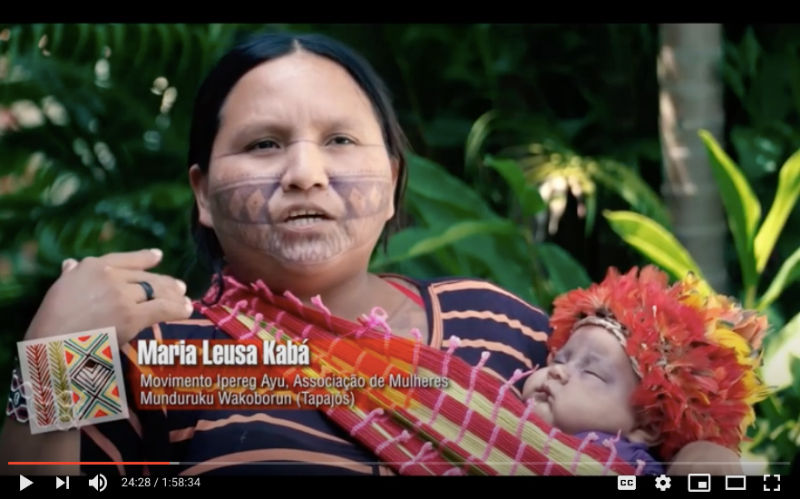
Corporate accountability & Finance
Guinea’s Moyen-Bafing National Park is home to dozens of local communities and serves as one of the last bastions of the western chimpanzee. If plans to build a massive dam in the middle of the park go ahead, an area twice the size of the city of San Francisco will be flooded, displacing over 8,000 people and decimating a large part of the chimpanzee population. The species have already declined by over 80% in the last 20 years and are now considered critically endangered – the highest level of risk – by the International Union for Conservation of Nature.
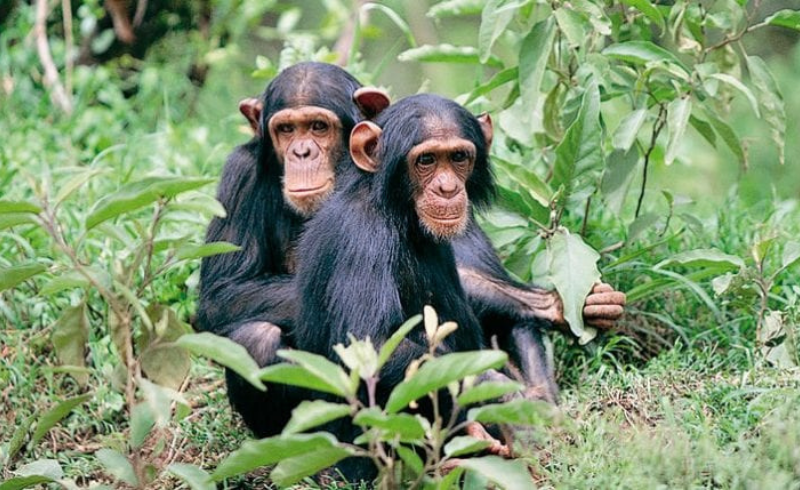
This year, we worked with partner organizations in Guinea and with communities that would be displaced by the Koukoutamba dam. Local communities have asked us to help them remain on their lands, and requested support to protect their rights. Serving as a bridge between communities and decision makers, International Rivers presented the Koukoutamba case to the World Bank, the US government, and the Chinese company that would build the dam. Our work demonstrates that the project would yield little for the high cost, and could easily be replaced by more sustainable solar energy. Building on relationships that International Rivers has developed with Chinese companies for years, the company is now engaging in dialogue with us as we show that just and ecological alternatives are possible.
This project is a continuation of our longstanding work to expose corporate non-compliance and raise standards in the hydropower and related sectors through several new initiatives and partnerships. Building on the release of our November 2019 report, Watered Down, we are developing case studies on Chinese dam companies’ adherence to biodiversity standards and commitments in the leadup to China hosting the Convention on Biological Diversity COP 15 in 2021. This year we worked with TMP Systems to develop ‘Riverscope’, a new tool using data-driven assessments to translate social and environmental impacts into financial risks, to help steer energy investments away from destructive projects towards more sustainable alternatives. This included two “deep dive” pilot assessments of the Batang Toru and Koukoutamba dams, both of which would entail severe impacts on ape populations. The Riverscope tool will be launched in 2021.
Featured image: A shot from Consultation Protocols: Instrument for the Defense of Territories and Rights. An indigenous representative speaks on camera about the use of consultation protocols.

